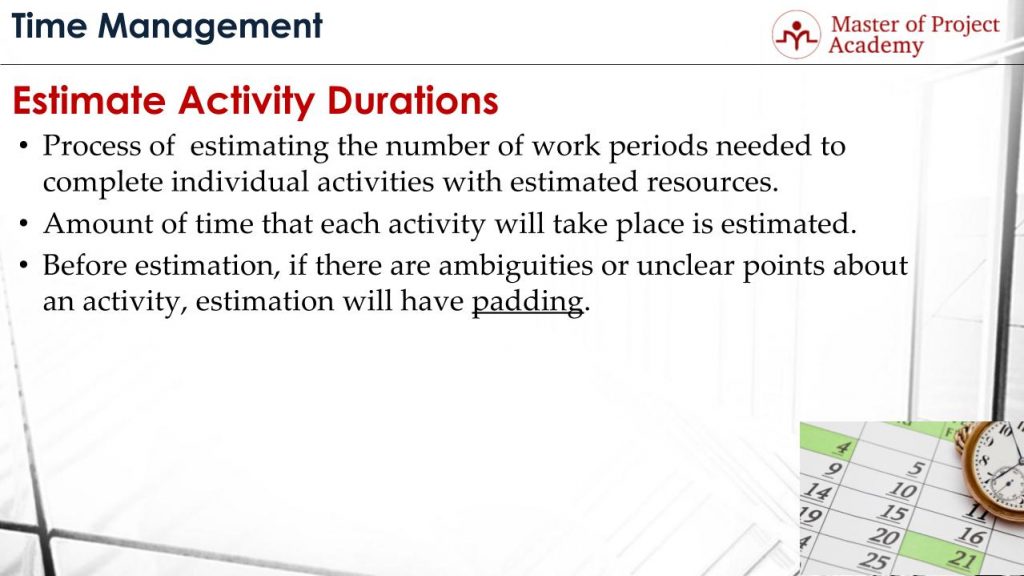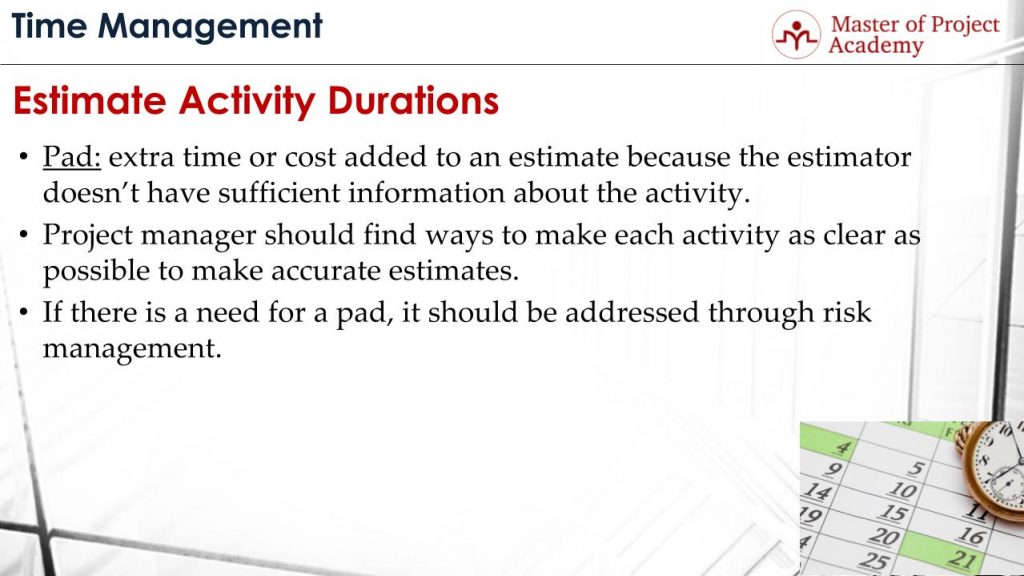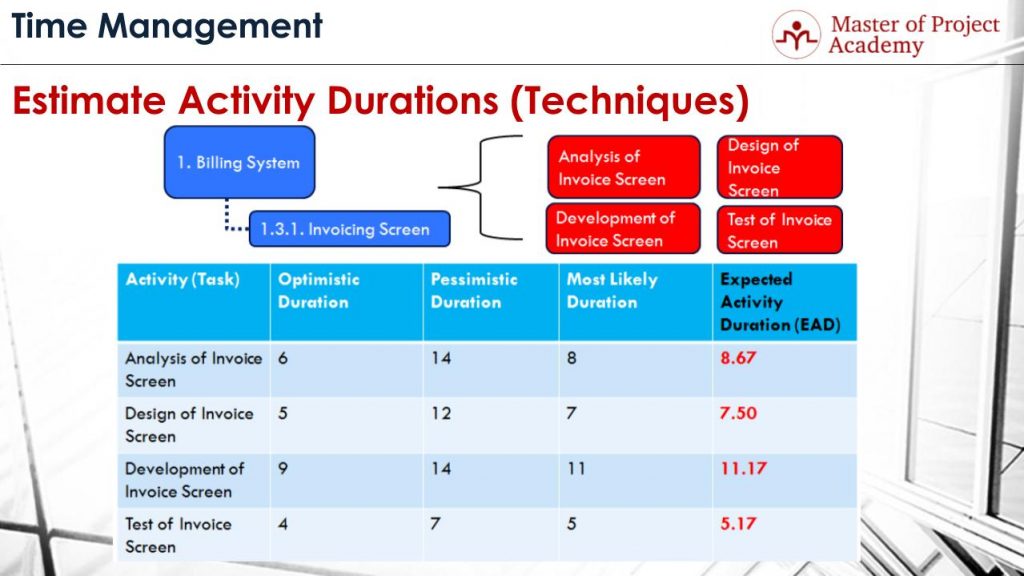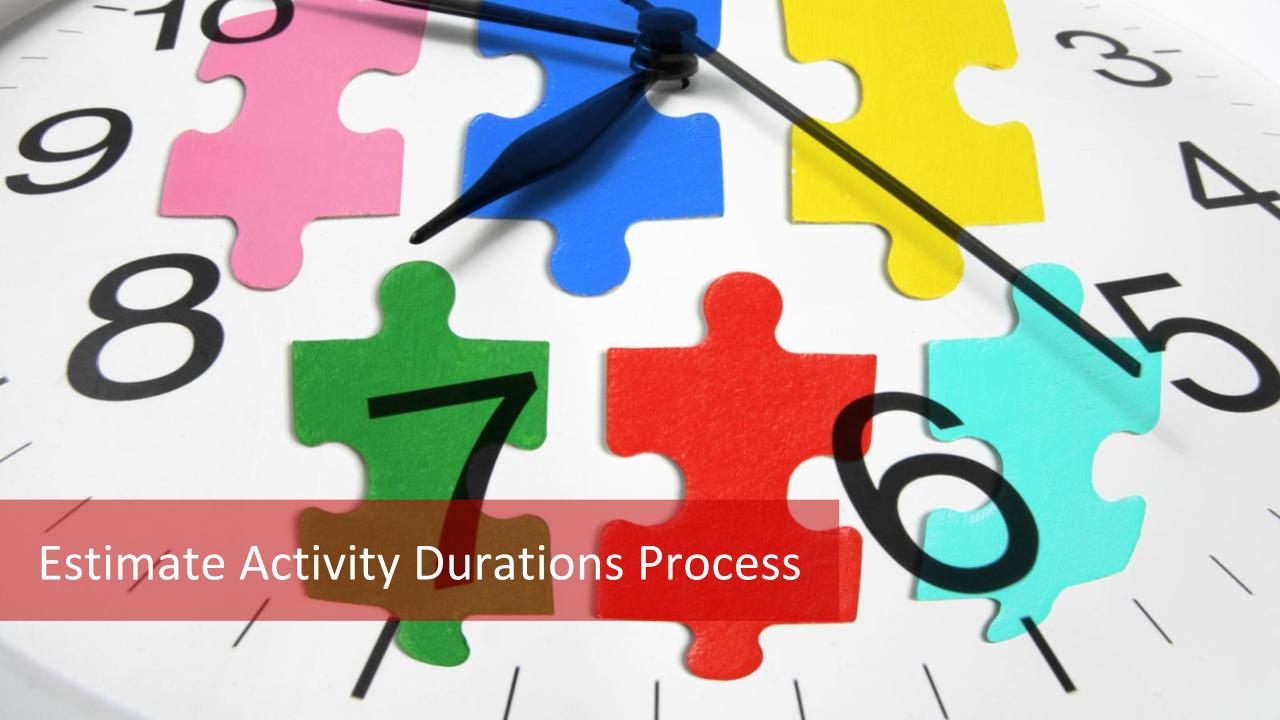If you already took a PMP training course, you must know how the schedule is planned in plan schedule management process, how activities are defined in define activities process, the order of activities in sequence activities process, and resource requirements for activities in estimate activity resources process. If you haven’t started to prepare for the PMP exam yet, don’t forget to include this important process in your PMP study plan! Because PMP exam training explains all these processes of Time Management. After these processes, Estimate Activity Durations Process begins.
Attend our 100% Online & Self-Paced One-Hour Free PMP Training.
In this article, we are going to explore what this process is all about. Also, give an example of Estimate Activity Durations Process.
What is Estimate Activity Durations Process?
This is the process of estimating the number of work periods needed to complete individual activities with estimated resources. After activity resources are determined, these resources estimate the activity durations. How long they need to complete an activity. Based on their estimations, overall project duration will be determined respectively.

What is Done in the Estimate Activity Durations Process?
During this process amount of time that each activity will take places is estimated. Based on the description and details of the task, assignee of the activity makes an estimation. Each activity duration is estimated similarly by the assignee of each activity.
Before estimation, if there are ambiguities or unclear points about an activity, the estimation will have padding. In order to understand this, let’s see what padding is first.

What is Padding?
Pad is extra time or cost added to an estimate because the estimator does not have sufficient information about the activity. During this process, project resources make their estimations based on the currently available information today. And if there is not that much information about the activity, or if there are risks that may arise and cause the activity to take longer, this will cause padding during estimation.
Therefore the project manager should find ways to make each activity as clear as possible to make accurate estimates in the estimate activity durations process. Any risks might be eliminated as much as possible. Unclear points or missing information about the activities must be cleared out to have a more accurate estimation of the project resources.

Although the project manager tries to eliminate risks, there might be still existing risks that must be taken into account. In this case, if there is a need for a pad, it should be addressed through risk management. Because reserves to accommodate risks when they occur are planned during risk management activities. During Estimate Activity Durations process, project resource must consider only the activity duration if everything goes as planned.
Estimate Activity Durations Process Example
There are many techniques used in this process. Typically, one technique is chosen and used for all activity duration estimations in a project.

In our Estimate Activity Durations process example, we used Beta Distribution of PERT analysis.
As you see, optimistic, pessimistic and most likely activity duration estimates for each activity are taken from the estimator. When we substitute these optimistic, pessimistic and most likely values in the beta distribution formula of PERT analysis,
- Estimated activity duration for analysis of invoice screen is 8.67 days.
- Estimated activity duration for the design of invoice screen is 7.50 days.
- Estimated activity duration for the development of invoice screen is 11.17 days.
- And estimated activity duration for the test of invoice screen is 5.17 days.
These estimated activity durations are used to calculate the total project duration and complete the schedule of the project as well.
Review by: Jeff Adams



One thought on “What Has To Be Done In Estimate Activity Durations Process?”
Comments are closed.